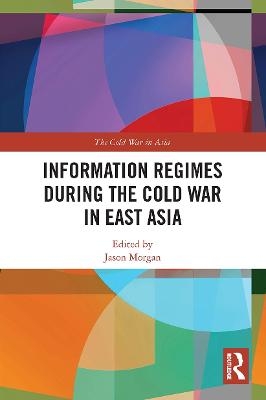
Information Regimes During the Cold War in East Asia
Routledge (Verlag)
978-0-367-49944-0 (ISBN)
Morgan and his contributors develop the concept of the Information Regime as a way to understand the use, abuse, and control of information in East Asia during the Cold War period.
During the Cold War, war itself was changing, as was statecraft. Information emerged as the most valuable commodity, becoming the key component of societies across the globe. This was especially true in East Asia, where the military alliances forged in the wake of World War II were put to the most severe of tests. These tests came in the form of adversarial relations between the United States and the Soviet Union, as well as pressures within their alliances, which eventually caused the People’s Republic of China to break with from Moscow, while Japan for a time during the 1950s and 1660s seemed poised to move away from Washington. More important than military might, or economic influence, was the creation of "information regimes" – swathes of territory where a paradigm, ideology, or political arrangement were obtained. Information regimes are not necessarily state-centric and many of the contributors to this book focus on examples which were not so. Such a focus allows us to see that the East Asian Cold War was not really "cold" at all, but was the epicentre of an active, contentious birth of information as the defining element of human interaction.
This book is a valuable resource for historians of East Asia and of developments in information management in the twentieth century.
Jason Morgan is Associate Professor in the Faculty of Global Studies at Reitaku University, Japan
Part One: Diplomacy, Public Diplomacy, and Espionage 1. Behind the Curtains: How Soviet Intelligence Masters and Japanese Journalists Brought About Soviet-Japan Diplomatic Normalization—Without the Return of the Northern Territories 2. Saving China, Losing China: The Transformation of a Prewar to Cold War Information Regime 3. Piecing Together the "Broken Dialogue": Ambassador Douglas MacArthur and the Controversy over Professor Edwin O. Reischauer’s Foreign Affairs Article Part Two: Knowledge Networks and Scholarship 4. Kyōsei Renkō (Forced Mobilization): Pak Kyǒng-sik and Zainichi Identity as Inspired by North Korea 5. The Effect of Chinese Communism on an Australian in British Malaya, 1950–1971: Escaping Ideology by Nearly "Going Native" Part Three: Ideologies, Religion, and Culture 6. Catholicism and the Cold War in Japan 7. The Cold War as Gestalt for North Korea as a Diplomatic Subject 8. The Club of Rome in East Asia: U.S.-Led Population-Control Information Regimes and Waging the Cold War in the Far East
| Erscheinungsdatum | 21.04.2022 |
|---|---|
| Reihe/Serie | The Cold War in Asia |
| Verlagsort | London |
| Sprache | englisch |
| Maße | 156 x 234 mm |
| Gewicht | 308 g |
| Themenwelt | Geschichte ► Allgemeine Geschichte ► Zeitgeschichte |
| Geisteswissenschaften ► Geschichte ► Regional- / Ländergeschichte | |
| Sozialwissenschaften ► Kommunikation / Medien ► Medienwissenschaft | |
| ISBN-10 | 0-367-49944-4 / 0367499444 |
| ISBN-13 | 978-0-367-49944-0 / 9780367499440 |
| Zustand | Neuware |
| Haben Sie eine Frage zum Produkt? |
aus dem Bereich


